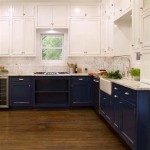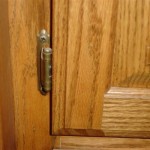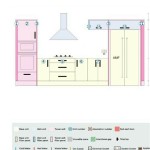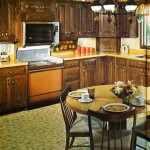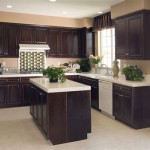Kitchen Cabinet LED Lighting: A Comprehensive Guide
Kitchen cabinet lighting serves both a functional and aesthetic purpose. It illuminates workspaces, enhances visibility within cabinets, and adds a touch of elegance to the kitchen's overall design. Among the various lighting options available, LED (Light Emitting Diode) lights have emerged as a popular choice due to their energy efficiency, longevity, and versatility.
Key Benefits of LED Cabinet Lighting
LED lights offer numerous advantages that make them an ideal choice for kitchen cabinets:
- Energy Efficiency: LEDs consume significantly less energy than traditional incandescent or halogen bulbs, leading to lower electricity bills.
- Long Lifespan: LED lights have a remarkably long lifespan, reducing the frequency of replacements and associated costs.
- Minimal Heat Output: LEDs generate very little heat, minimizing the risk of burns and making them safe to use around flammable materials.
- Compact Size: The small size of LED lights allows for flexible placement and integration into various cabinet designs.
- Dimmability: Many LED lights offer dimming capabilities, allowing users to adjust the brightness according to their needs and create different ambiances.
- Color Temperature Options: LEDs are available in a range of color temperatures, from warm white to cool white, enabling users to customize the lighting to match their kitchen's aesthetic.
Types of LED Cabinet Lighting
Several types of LED lights are suitable for kitchen cabinet applications:
- LED Strip Lights: Flexible and adhesive-backed, strip lights can be easily installed under cabinets, inside drawers, or along shelves.
- LED Puck Lights: These small, disc-shaped lights are ideal for spotlighting specific areas within cabinets or providing general illumination.
- LED Under Cabinet Lighting: Specifically designed for under-cabinet installation, these lights come in various forms, including linear bars and individual modules.
- Recessed LED Downlights: These lights are installed directly into the cabinet ceiling, providing a clean and integrated look.
Factors to Consider When Choosing LED Cabinet Lighting
Selecting the right LED cabinet lighting involves considering several factors:
- Brightness: Consider the desired level of illumination. Brightness is measured in lumens, with higher lumens indicating brighter light.
- Color Temperature: Choose a color temperature that complements the kitchen's existing lighting and décor. Warm white (2700-3000K) creates a cozy atmosphere, while cool white (5000-6500K) provides a brighter, more modern feel.
- Cabinet Design: The cabinet's construction and layout influence the type of lighting that is most suitable. For example, under-cabinet lighting might be preferable for wall cabinets, while puck lights could be a better choice for glass-front cabinets.
- Power Source: LED lights can be powered by batteries, plug-in adapters, or hardwired connections. Choose the option that best suits the installation location and accessibility.
Installation of LED Cabinet Lighting
The installation process varies depending on the type of LED lighting chosen. However, some general guidelines apply:
- Safety First: Always disconnect the power supply before beginning any electrical work.
- Follow Manufacturer's Instructions: Carefully read and follow the manufacturer's instructions provided with the LED lighting kit.
- Measure and Plan: Accurately measure the cabinet dimensions and plan the placement of the lights before starting the installation.
- Secure Wiring: Ensure that all wiring is properly secured and concealed to prevent hazards.
- Testing: After installation, thoroughly test the lighting to ensure that it is functioning correctly.
Maintenance of LED Cabinet Lighting
LED lights require minimal maintenance:
- Cleaning: Occasionally wipe the lights with a soft, dry cloth to remove dust and debris.
- Bulb Replacement: Due to their long lifespan, LED bulbs rarely need replacing. However, when replacement is necessary, ensure compatibility with the existing system.
Enhancing Kitchen Design with LED Cabinet Lighting
LED cabinet lighting can significantly enhance the kitchen's aesthetics:
- Highlighting Features: Use LED lights to accentuate architectural details, decorative backsplashes, or prized dishware.
- Creating Ambiance: Dimmable LED lights allow for creating different moods and atmospheres within the kitchen.
- Improving Functionality: Properly placed LED lights improve visibility and make tasks easier to perform.
Energy Savings with LED Cabinet Lighting
Switching to LED cabinet lighting can significantly reduce energy consumption and lower electricity costs:
- Lower Wattage: LEDs use significantly less wattage than traditional lighting options.
- Reduced Energy Consumption: The lower wattage translates to reduced energy usage, resulting in lower electricity bills.
- Long-Term Savings: The long lifespan of LEDs further contributes to long-term cost savings.
Choosing the Right Color Temperature for Your Kitchen
The color temperature of LED lights plays a crucial role in setting the mood and ambiance of the kitchen:
- Warm White (2700-3000K): Creates a warm, inviting atmosphere, ideal for traditional or cozy kitchens.
- Neutral White (3500-4100K): Provides a balanced, natural light, suitable for most kitchen styles.
- Cool White (5000-6500K): Offers a bright, crisp light, often preferred in modern or contemporary kitchens.

How To Choose And Install Led Strip Lights For Kitchen Cabinets
Led Under Cabinet Lighting Projects How To Use Strip Lights

Why Under Cabinet Kitchen Lights Are A Bright Addition To Your Home

Commercial Electric Plug In 18 Led Under Cabinet Light Ucl036s Ul The Home Depot

Commercial Electric 16 Ft Led Tunable White Tape Light Kit Under Cabinet 421510 The Home Depot

Decorate The Kitchen With Under Cabinet Led Strip Lighting Govee
Cadrim Led Puck Lights Review Fast And Easy Kitchen Lighting Upgrade
Artika Stream Led Under Cabinet 3 Light Set Costco

9 Best In Cabinet Lighting Options And Ideas

Led Under Cabinet Lighting 12 Inch Plug In Counter Light Fixture Dimmable Etl Energy Star 3 Color Changing Linkable Over Sink For Kitchen Office Garage Work Com
Related Posts

